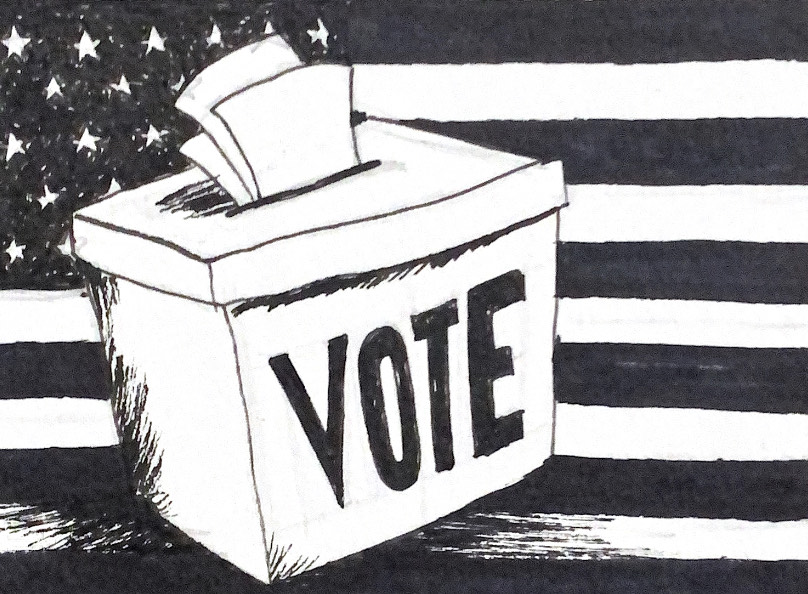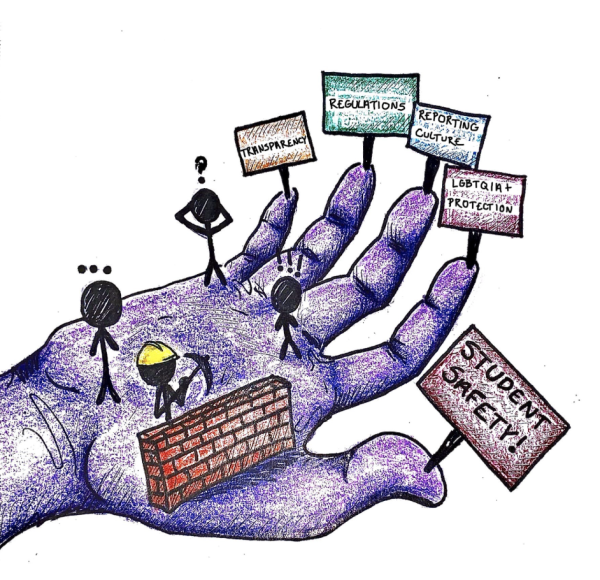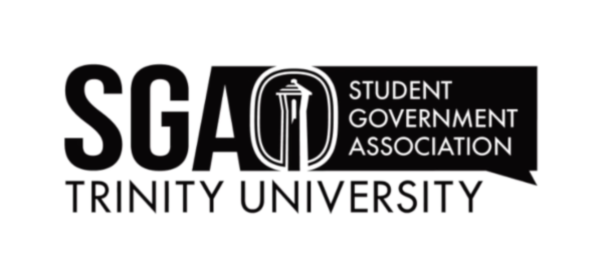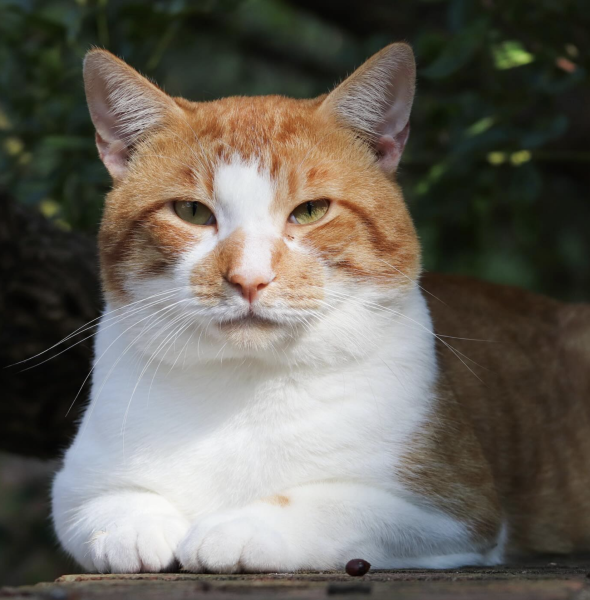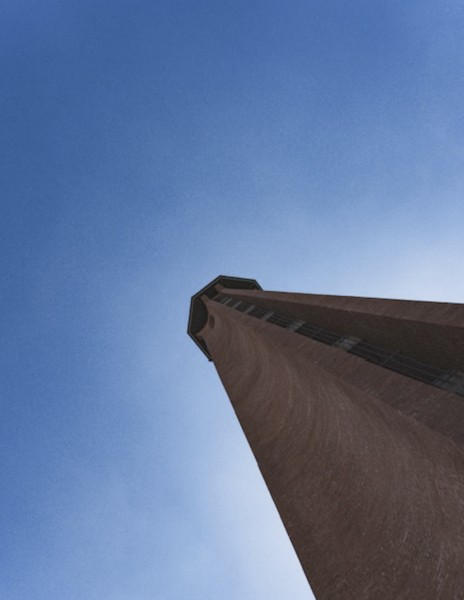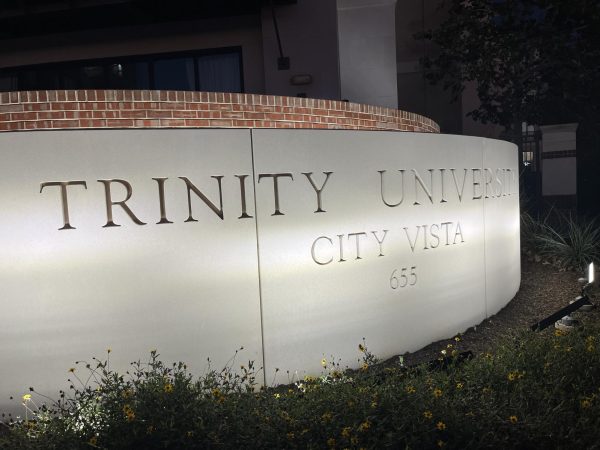From local to national midterm elections: What happened?
Trinity students give their perspective about the outcomes of the Nov. 8 elections
Outside the Coates Student Center on Tues. Nov. 8 — midterm Election Day in the United States — a red, white and blue tent stood beside a table with a plethora of snacks and voting information. The table was run by Trinity democracy fellows, staff, faculty, student volunteers and a representative from MoveTX, a non-profit, non-partisan voter empowerment organization. Volunteers drove vans to shuttle students to and from local polling stations.
Jordan Nelson, junior political science and history double-major and democracy fellow, spoke to many students on election day to answer any last-minute questions about the voting process.
“We had over 60 students use our free transportation during early voting and approximately 15 on Election Day. However, most students opted to walk to Alamo Convocation Center using the maps we provided. Most students took the initiative to vote for themselves. We talked to many who voted early,” Nelson wrote in an email.
Shortly after polls closed, it was clear that Democrat Greg Casar was elected to his first term by a more-than-20-point margin to serve Texas’ 35th congressional district, which now encompasses Trinity’s campus due to recent redistricting. Also in Trinity’s district, Democrats José Menéndez, Diego Bernal and Marisa B. Perez-Diaz were reelected to their respective positions as Texas state senator, Texas state congressman and State of Texas School Board member.
Sophomore political science and international studies double-major Blaine Martin characterizes himself as a close follower of U.S. politics. Speaking about the state of Texas elections, Martin said he was not surprised to see that incumbent Republican Governor Greg Abbott was reelected by more than four points, according to the Texas Tribune. Abbott won against 2020 presidential hopeful Democrat Beto O’Rourke.
“I had seen reports that Greg Abbott has been proven to be the best fundraiser of any governor in [the] recent memory of Texas … so I kind of figured going into election day that that [he] would probably [win],” Martin said.
Other statewide races like Lieutenant Governor and Attorney General resulted in Republican incumbents Dan Patrick and Ken Paxton winning reelection, respectively.
On the national stage, the U.S. Senate will be narrowly controlled by a Democratic majority with only the runoff Senate race in Georgia between Democratic incumbent senator Raphael Warnock and Republican challenger Herschel Walker. At the time of writing, the U.S. House of Representatives is undecided, with nine seats up in the air. According to the New York Times, the general consensus is that Republicans will flip the House with a majority in the single digits. These close majorities in both the Senate and the House were not widely predicted by many polls in the lead-up to the midterm elections.
First-year engineering major Pascale Easterday voted in Bexar County on Election Day. For the statewide elections, Easterday predicted Republicans to win. She was also anticipating a “red wave” or for the Republican party to win by healthy margins in both the House and Senate.
“I was expecting to have [the red wave especially because of] a lot of Americans’ views towards Biden’s presidency and a lot of the current politicians [are negative],” Easterday said.
Nonetheless, the “red wave” did not come to fruition. Martin suggested that this wave did not occur because the American people have more than the economy on their minds at the polls.
“There is no way that every individual in this nation can only be concerned about the economy rather than, you know, abortion and same-sex marriage and with democracy itself being on the ballot,” Martin said.
Regardless of the reason for voting, one aspect of the midterm elections was abundantly clear: youth voters turned out at the second-largest percentage in 30 years. Martin attributes this to college/university efforts like the TU Voter Engagement Task Force and social media mobilization. Easterday said that there is a long history of voting heritage in the United States that citizens should be compelled to continue.
“I feel like it’s a civic duty for me; it’s a responsibility that I have to vote. Because I feel like I can’t have an opinion on something if I don’t take the opportunity that I can, if it’s given to me, to try and make a change [with my vote],” Easterday said.
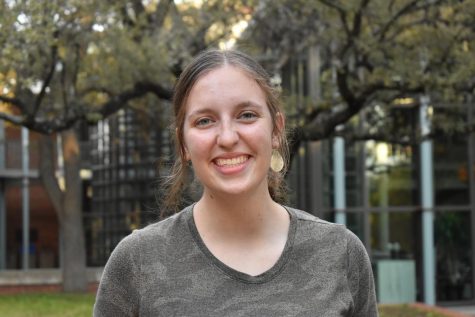
Hello, y'all! I'm Abby Power, and I am a sophomore news reporter from Kyle, Texas. I intend to major in Political Science, Spanish, and Global Latinx Studies....
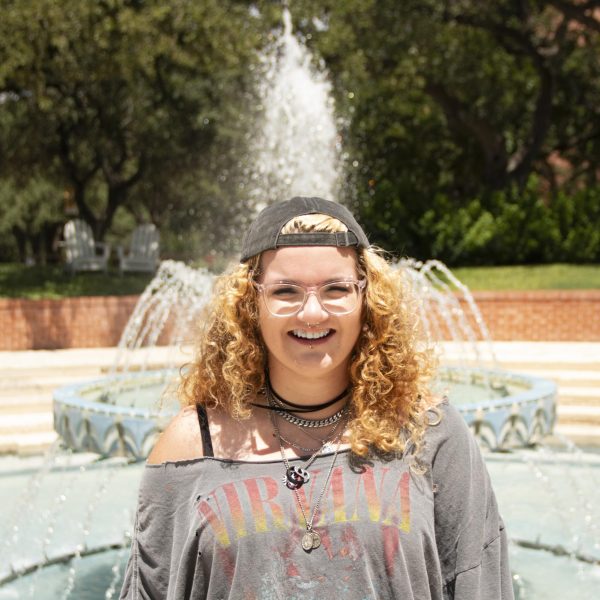
Whattup! My name is Skylar Savarin (she/her/hers), and I am the Visual section editor! I am a third-year double majoring in Human Communication and Art....

